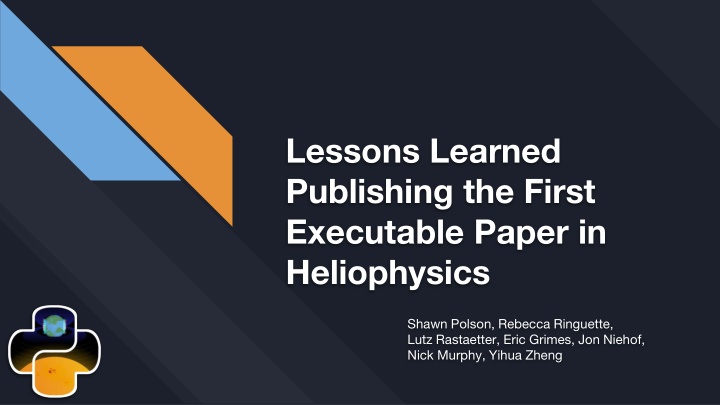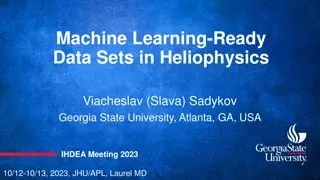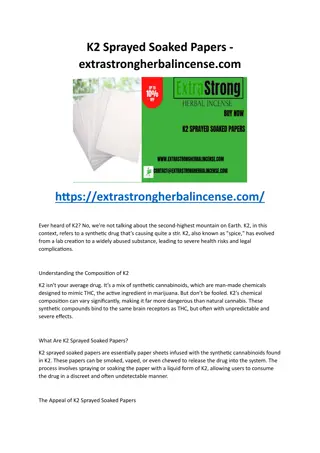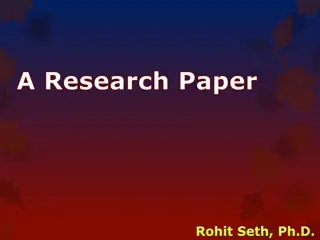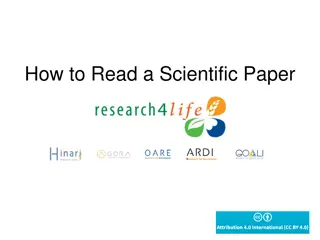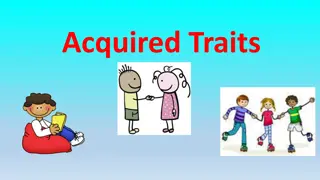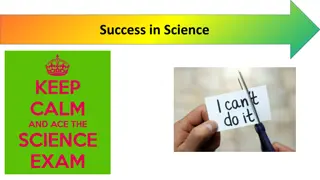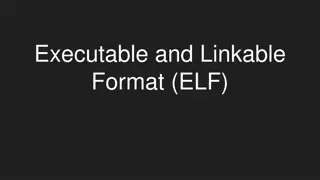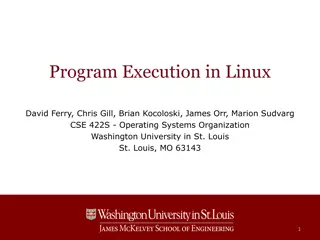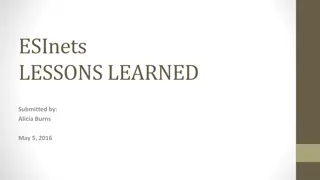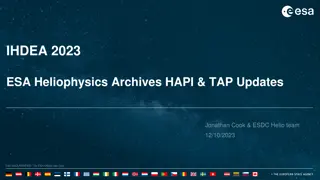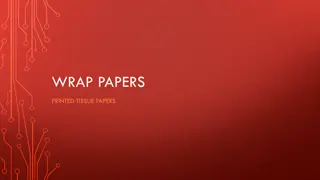Lessons Learned from Publishing Executable Papers in Heliophysics
Addressing challenges in reproducibility and open science, this presentation discusses the innovative concept of executable papers in heliophysics research. By integrating text, data, and code, executable papers enable readers to replicate each step leading to research conclusions, overcoming traditional publication shortcomings. The talk explores the benefits and obstacles associated with this advanced form of scientific communication.
Download Presentation

Please find below an Image/Link to download the presentation.
The content on the website is provided AS IS for your information and personal use only. It may not be sold, licensed, or shared on other websites without obtaining consent from the author.If you encounter any issues during the download, it is possible that the publisher has removed the file from their server.
You are allowed to download the files provided on this website for personal or commercial use, subject to the condition that they are used lawfully. All files are the property of their respective owners.
The content on the website is provided AS IS for your information and personal use only. It may not be sold, licensed, or shared on other websites without obtaining consent from the author.
E N D
Presentation Transcript
Lessons Learned Publishing the First Executable Paper in Heliophysics Shawn Polson, Rebecca Ringuette, Lutz Rastaetter, Eric Grimes, Jon Niehof, Nick Murphy, Yihua Zheng
In This Talk Open Science and Reproducibility Problems Executable Papers Intro Lessons Learned
Open Science and Reproducibility Problems
Open Science and Reproducibility Problems Six years since Nature lifted the lid on the reproducibility crisis
Open Science and Reproducibility Problems Traditional publications face reproducibility problems Missing raw or original data Lack of a tidied-up version of the data No source code available Lacking software to run the experiment
Open Science and Reproducibility Problems Traditional publications face reproducibility problems Missing raw or original data Lack of a tidied-up version of the data No source code available Lacking software to run the experiment Even when available, replication can be non-trivial
Executable Papers Interactive pieces of software that combine text, data, and code to enable readers to reproduce every step taken to arrive at a publication s conclusions
Publishing Executable Papers Journals don t yet accept executable papers Not unheard of to reference 80 100 year-old papers Hard to fathom that level of support for any software Who hosts them? Include them with traditional paper submissions
Lessons Learned Executable papers solve problems Big data is a challenge Journals decide how you represent code Working with typesetters was tricky
Executable papers solve problems Traditional publications face reproducibility problems Missing raw or original data Have all data Lack of a tidied-up version of the data Have all data No source code available Have all source code Lacking software to run the experiment Have the software Even when available, replication can be non-trivial Trivial replication
Big data is a challenge Storage Limits Deepnote: 5GB free GitHub: 100MB files / 100GB repos (under 5GB recommended) Google Colab: 2GB files / ~77GB proj free (Pro offers up to 700GB) CoCalc: 3GB free (64GB 64TB offered for astronomical prices) Self-hosted container: whatever you can afford indefinitely Can t link to cloud storage in your paper
Journals decide how you represent code Text vs images Special fonts? Which images count as figures? Figure limits Typesetting figures
In Conclusion Traditional papers face open science and reproducibility problems Executable papers combine text and code Lessons Learned: Executable papers solve problems Big data is a challenge Journals decide how you represent code Working with typersetters was tricky
Thank you Contact me: shawn.polson@lasp.colorado.edu
